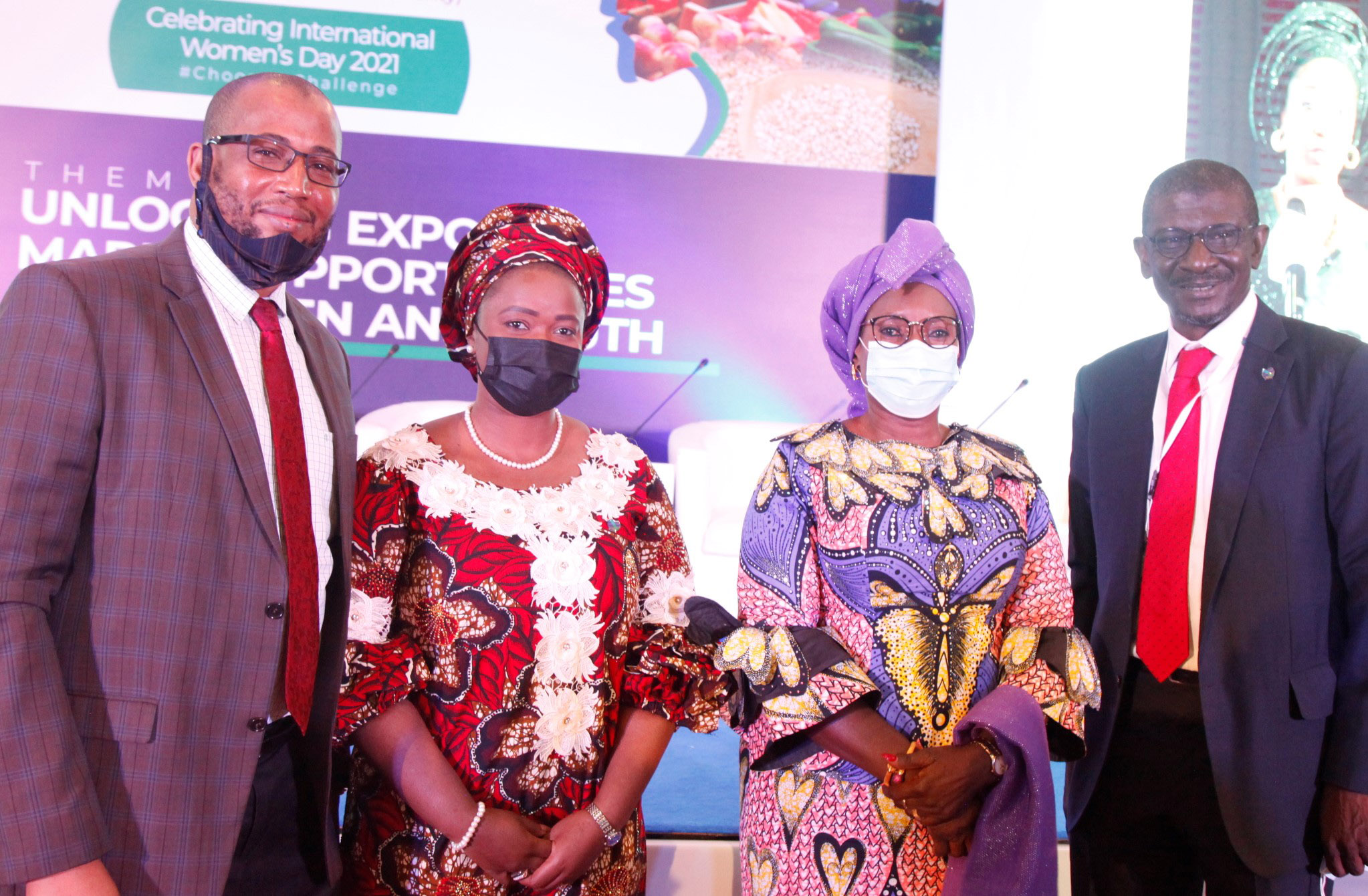Business
NEXIM Supports Women, Youths With N10bn Export Facility

The Nigerian Export-Import Bank (NEXIM) is supporting women and youth with a N10 billion export facility, Executive Director, Business Development, Stella Okotete, says.
She disclosed this yesterday in Abuja at the official presentation of the Women And Youth Export Facility (WAYEF), a new product of the bank.
Okotete also said that WAYEF was developed by the bank on the recognition of the critical role of women and youth in the Small Medium Enterprises (SMEs) sector.
She said that the aim was to upscale the activities of SMEs in the non-oil export value chain to enable Nigerian exporters to take advantage of the enormous potential of international trade.
The executive director also said that the facility, which was originally at a single digit interest rate of nine per cent, would go for five per cent till February 2022.
“So, there’s no better time than now to avail yourself to tap into these products.
“So, if you can actually become an aggregator, you can increase your export quantity and employ more women and young people in Nigeria to play in the export value chain.”
Okotete said that the tenor was in line with working capital and project financing requirements, which was a maximum of two years and five years, subject to review by NEXIM.
The Managing Director of the bank, Mr Abba Bello, said the facility was part of its contribution towards women and youth empowerment.
He said that it was also in commemoration of the 2021 International Women’s Day which was celebrated on March 8.
According to him, most discrimination against wo-men have their roots in age-long cultural practices.
He, however, said there was the need to redouble efforts towards addressing such cultural practices and other obnoxious beliefs that have imposed limitations on gender.
“The female gender is the reason why we are here, the male gender needs to understand that we are poorer, as a people and as nations, by denying women equal opportunities,” he stated.
“Let me clarify though that over the years, the bank has provided a normal support for many export oriented industries who are employers of women and youth.
“We, however, seek to do more by supporting women and youth owned businesses operating in the various aspects of the export value chain,” he said.
Minister for Women Affairs, Mrs Pauline Tallen said it was gratifying that NEXIM recognised the indispensable role of women in economic development and had developed an export facility to cater for their special funding needs.
“This initiative speaks to the new concept of analytical work of grace, quality and how we can best work together across all levels of government, the private sector and the civil society in translating evidence into impact on women’s economic empowerment in Nigeria.
Business
Agency Gives Insight Into Its Inspection, Monitoring Operations

Business
BVN Enrolments Rise 6% To 67.8m In 2025 — NIBSS

The Nigeria Inter-Bank Settlement System (NIBSS) has said that Bank Verification Number (BVN) enrolments rose by 6.8 per cent year-on-year to 67.8 million as at December 2025, up from 63.5 million recorded in the corresponding period of 2024.
In a statement published on its website, NIBSS attributed the growth to stronger policy enforcement by the Central Bank of Nigeria (CBN) and the expansion of diaspora enrolment initiatives.
NIBSS noted that the expansion reinforces the BVN system’s central role in Nigeria’s financial inclusion drive and digital identity framework.
Another major driver, the statement said, was the rollout of the Non-Resident Bank Verification Number (NRBVN) initiative, which allows Nigerians in the diaspora to obtain a BVN remotely without physical presence in the country.
A five-year analysis by NIBSS showed consistent growth in BVN enrolments, rising from 51.9 million in 2021 to 56.0 million in 2022, 60.1 million in 2023, 63.5 million in 2024 and 67.8 million by December 2025. The steady increase reflects stronger compliance with biometric identity requirements and improved coverage of the national banking identity system.
However, NIBSS noted that BVN enrolments still lag the total number of active bank accounts, which exceeded 320 million as of March 2025.
The gap, it explained, is largely due to multiple bank accounts linked to single BVNs, as well as customers yet to complete enrolment, despite the progress recorded.

